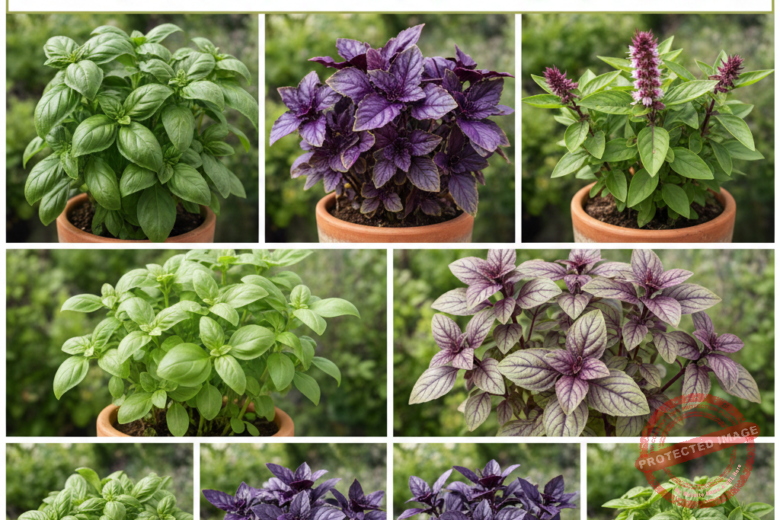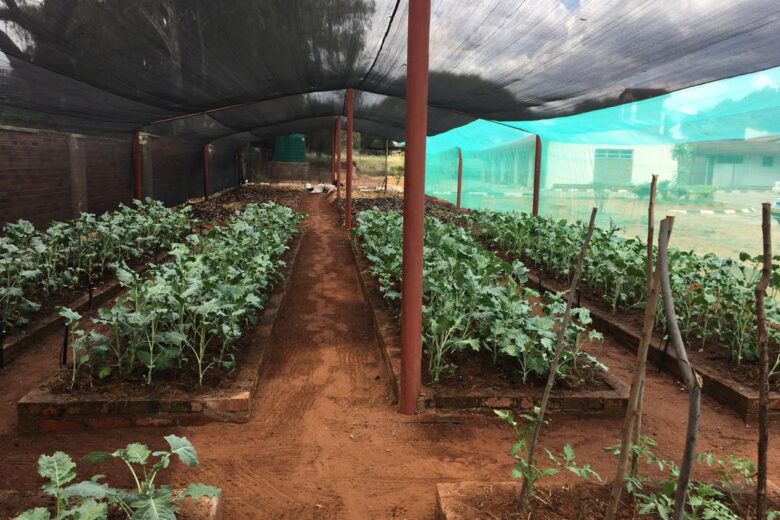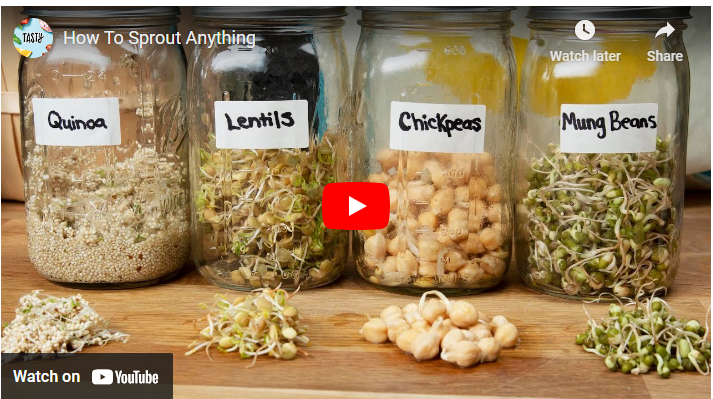The palm oil used to be the major source of income in Nigeria before the discovery of crude oil. However, the case is no longer so and the oil palm tree farming business is gradually losing its relevance in Nigeria.
Nonetheless, there has been an intense effort to revitalize oil palm farming with different interventions taken. Considering the high demand for oil palm products for everyday use, you can take up the task of becoming an oil palm farmer in Nigeria today.
To start a palm plantation in Nigeria, all you need do is to acquire farmland, acquire palm seedlings, preparation of farmland, plant, plant care, farm management, and harvest.
How To Start Oil Palm Tree Farming Business In Nigeria
Without further ado, we go straight to discussing how to start an oil palm tree farming business in Nigeria below.
Read Also: How To Start Tomatoes Farming Nigeria [Beginners Kit]
Step 1: Acquire Farmland
If you are looking for a suitable location to farm oil palm trees, it is best to go to any area in the east and west of Nigeria because lands in these areas are suitable for palm tree survival and productivity.
Read Also: [Beginners Guide] How To Start Rice Farming In Nigeria
Get a large amount of land in a good location. The land should have good soil for oil palm farming, access to adequate rainfall and sunshine, and be motorable so that tractors and lorries can get in.
Step 2: Acquire Palm Seedlings
You must obtain high-yield seed from a reliable source, such as the Nigerian Institute of Oil Palm Research or an existing oil palm farmer. It will take several years for the seeds to germinate if they are not properly cared for. The seeds should be kept in a very hot room to help them germinate quickly. As a result, the seeds germinate in 90 to 100 days.
Read Also: [Best Guide] How To Start Cucumber Farming In Nigeria
Step 3: Preparation of Farmland
The preparation process can be difficult if you buy a new farm with trees, shrubs, and other unwanted plants. To prepare farmland for farming, the following steps must be taken.
Clear Farmland
You must clear the land and remove weeds and trees from the land to make the farmland suitable for farming. You can clear the land manually or employ laborers to do the work. You can use a mechanized system such as tractors, and bulldozers to remove big trees from the farmland.
Read also: How To Start Sugarcane Farming In Nigeria [Step By Step Guide]
Remove all Unwanted Plants
Gather all the unwanted plants and dispose of them so that the land is clean and ready for agricultural activities.
Level the Farmland
As part of the preparation work, the farmland is being leveled. When farmland is leveled and free of bumps and dips, palm plants thrive.
Step 4: Planting
Given the length of time, it takes for a palm tree to germinate and start producing fruit. You must prepare the palm nursery and plant the seedling to hasten the germination process. You can either germinate your seeds or buy seedlings that have already germinated.
Seeds are expected to germinate in about 12 days after being dried for about 2.5 months in stable hot rooms (40°C) and soaked for 4-5 days in daily changed water.
Then, they should be poured into a small plastic container and covered with black loam manured oil. After 4 to 5 months in the container, the young seedlings will sprout. It is time to move it to the nursery.
Young seedlings should be transferred from the nursery farm and planted on the main farmland when they are 15 to 17 months old.
Planting is best done during the rainy season, especially between June to September, so that plants can establish their root systems in this manner before the drought period begins.
Step 5: Plant Care and Farm Management
It is important to take proper care of your oil palm farm and ensure plant management so that they can grow to maturity and yield does not decrease.
Pest and disease control
After planting your palm seedlings, ensure that you occasionally check the plants until they are fully grown, and protect them from pests and insects that can cause disease which in turn can affect your oil palm plants.
You can fumigate the farm to combat pests and diseases.
Weeding
Weeding tends to grow alongside oil palm trees. If necessary, weed the farm to remove unwanted plants that compete with the palm tree.
Fertilizer application
For your palm tree to grow properly, you must fertilize your farmland. A sufficient supply of fertilizer to provide nutrients such as nitrogen, potassium, phosphorus, magnesium, and so on, ensures efficient plant cultivation. A lack of nutrients makes adequate growth impossible.
Fertilizers can be sourced from green mature, neem cake, and synthetic products and the application process can be scattered, and fertigation is a common method of providing nutrients during crop cultivation.
More so, fertilizer requirements for oil palm plantations are different depending on the age of the trees, with larger amounts required for mature plants.
Mulching
The best mulching method to apply is base mulching to conserve soil moisture and creates an ideal microclimate for plant growth. It also suppresses weeds in oil palm plantations. Male flowers, coconut husks, empty bunches, straws, and leaves can all be used as natural mulch in cultivation.
Adequate Watering
Ensure your oil palm tree is watered daily, especially during the dry season. You can create an irrigation system to water your plants.
Step 6: Harvest
Now that you have fulfilled all the above steps, it is time to wait for your palm tree to grow into maturity and start producing fruit. Normally, the palm tree begins producing fruit (palm kernel) within two to three years after planting.
The ripe kernels change from yellowish to reddish color. Once you see the change, it is time to harvest. The process can be done manually using a knife to cut down the bushels, or mechanically using machines.
Is Palm Tree Farming Profitable In Nigeria?
Palm tree farming is profitable in Nigeria because of the usefulness and huge profit involved in every part of the tree (fruits, kernel, trunks, leaves, and sap) used for different products. As such, palm tree farming is a great source of income in Nigeria.
How Long Does It Take A Palm Tree To Produce Fruit?
Palm tree takes their time to germinate and mature. It takes a palm tree between 3 to 4 years after planting to start producing fruit.
Which State In Nigeria Produces The Best Palm Oil?
Akwa Ibom state located in the Niger delta region is known to produce the best palm oil in Nigeria.
How Long Does Agric Palm Take To Grow?
Within one year, the young oil palms grow before they are transplanted into the field. Afterward, it takes 3 years for a palm tree to grow into maturity and start producing.
How Much Is A Ton Of Palm Fruit In Nigeria?
A ton of palm kernel costs about 300,000 Naira in Nigeria.
How Many Palm Trees Can Be Planted In A Plot Of Land?
Normally, Therefore, approximately 60 palms to an acre which works out to be 150 palms per Hectare.
What Is The Lifespan Of A Palm Tree?
A palm tree can live between 25 to 30 years depending on the species of the palm tree.
Which Palm Tree Grows The Fastest?
Caryota urens are the fastest-growing palm tree. It can grow up to 40 feet in just 5 years.
How Many Times Does A Palm Tree Produce In A Year?
A palm tree produces bunches all year long, ranging from 8 to 28 bunches per year, depending on age.
How Much Is 25 Litres Of Palm Oil In Nigeria?
In Nigeria, 25 liters of palm oil cost 31,000.00 Naira.
How Profitable Is Palm Oil Business In Nigeria?
In Nigeria, the palm oil business is profitable. The maximum annual yield of palm oil per hectare is estimated to be 8 tons. Furthermore, farmers earn approximately 3.4 tons of profit per hectare per year.
Who Is The Largest Producer Of Palm Oil In Nigeria?
Okomu Oil Palm Company is the largest producer of palm oil in Nigeria.
How Many Times Can You Harvest Palm Oil?
Oil palm can be harvested routinely once every 7—10 days.
Is Palm Tree Profitable?
Palm tree is a profitable business. You can sell the tree, or any part of the tree, including the fruit. Interestingly, almost every part of the palm tree can be sold leaving nothing to waste.
How Do I Start A Palm Farm?
First, you must establish an oil palm plantation, which includes finding a suitable location with rich, well-drained acidic soils and favorable climate conditions. Second, oil palm growth begins after land and seed preparation. Third, the oil palm cultivation method includes pest and weed control, irrigation and fertilization, early inflorescence ablation, and harvesting.
Where Can I Get Palm Tree Seeds In Nigeria?
You can get palm trees from the Nigeria institute of oil palm research or a trusted palm nursery/farmer.
How Many Litres Of Palm Oil Can A Palm Tree Produce?
An oil palm tree can produce about 50 liters of palm oil.
How Can I Start A High-Yield Palm Tree Plantation In Nigeria?
To start a high-yield palm tree plantation in Nigeria, you must look for suitable land, germinate your seeds, and plant your seedlings with appropriate spacing and density. Control of pests and weeds; irrigation and fertilization; and harvesting
How Much Water Do Palm Trees Require?
Palms prefer moist soil, so they should be watered several times per week. When you plant a palm tree, you should water it every day for the first week. Water every other day during the second week. After that, water twice or three times per week.
How Much Does A 10 Ft Palm Tree Cost?
A 10ft palm tree price ranges from $20 to $30. However, depending on the seller, age of the tree, and specie, the price may be higher or lower than the stated amount.
What Is The Easiest Palm Tree To Grow?
The areca palm (Dypsis lutescens), also known as the bamboo palm, is one of the simplest palms to cultivate.
How Long Does A Palm Tree Take To Grow From Seed?
Palm trees grow from seed and can take a very long time. Most palms germinate from seeds in 90 to 120 days.
What Is The Price Of Palm Oil?
The price of palm oil currently in Nigeria varies and it is dependent on the region. In the Southwest, the cost of red oil is usually cheaper which may range from 15,000 to 20,000 naira. Why in the Southsouth and Northern area, red oil are usually costly and may range from 25,000 to 30,000 naira.
How Profitable Is Oil Palm Farming In Nigeria
Oil palm farming is profitable in Nigeria giving the maximum annual yield of palm oil per hectare estimated to be 8 tons. Furthermore, farmers earn approximately 3.4 tons of profit per hectare per year.
List Of Oil Palm Plantations In Nigeria
The list of palm plantations in Nigeria is outlined by the state. They are Enugu, Imo, Ondo, Edo, Cross River, Delta, Akwa Ibom, Ekiti, Bayelsa, Rivers, Anambra, Oyo, Abia, Edo, and Ogun State.
Palm Oil Plantation Profit Per Hectare
palm oil plantation profit per hectare is estimated to be 40% of the capital you put in.
Oil Palm Plantation Cost Per Hectare In Nigeria
Oil palm plantation in Nigeria’s cost per hectare is between 800,000 to 2,000,000 Naira.
Oil Palm Farming In Nigeria PDF
Oil palm farming in Nigeria PDF is a step-by-step guide that will teach you all you need to know about oil palm farming in Nigeria.
Oil Palm Plantation in Nigeria
Oil palm plantation in Nigeria is mostly found in the West and Este region of Nigeria. The soil and climate condition of both region favors and enhance oil palm plantation in Nigeria.
Types Of Palm Trees In Nigeria
- Ponytail Palm
- Parlor Palm
- Lady Palm
- Livistona Palm
- Fan Palm
- Phoenix Palm
- Cardboard Palm.
Conclusion
Oil palm farming is a productive and lucrative business if done properly following the steps and guidelines discussed in this material, will make you money for many years to come.




Quite simple and well detailed.
Pls I need to know if the 50 litre yield of a palm tree is per annum or per life time of the tree.
No, it is per harvest, you can harvest at least 2 time or three in a year
Please how can i access the pdf?
You can kindly bookmark this page or look for the download button in this link
How can I reach you, I will like to work with you. I want to start my own farm
You can reach me via WhatsApp on +2348062596273